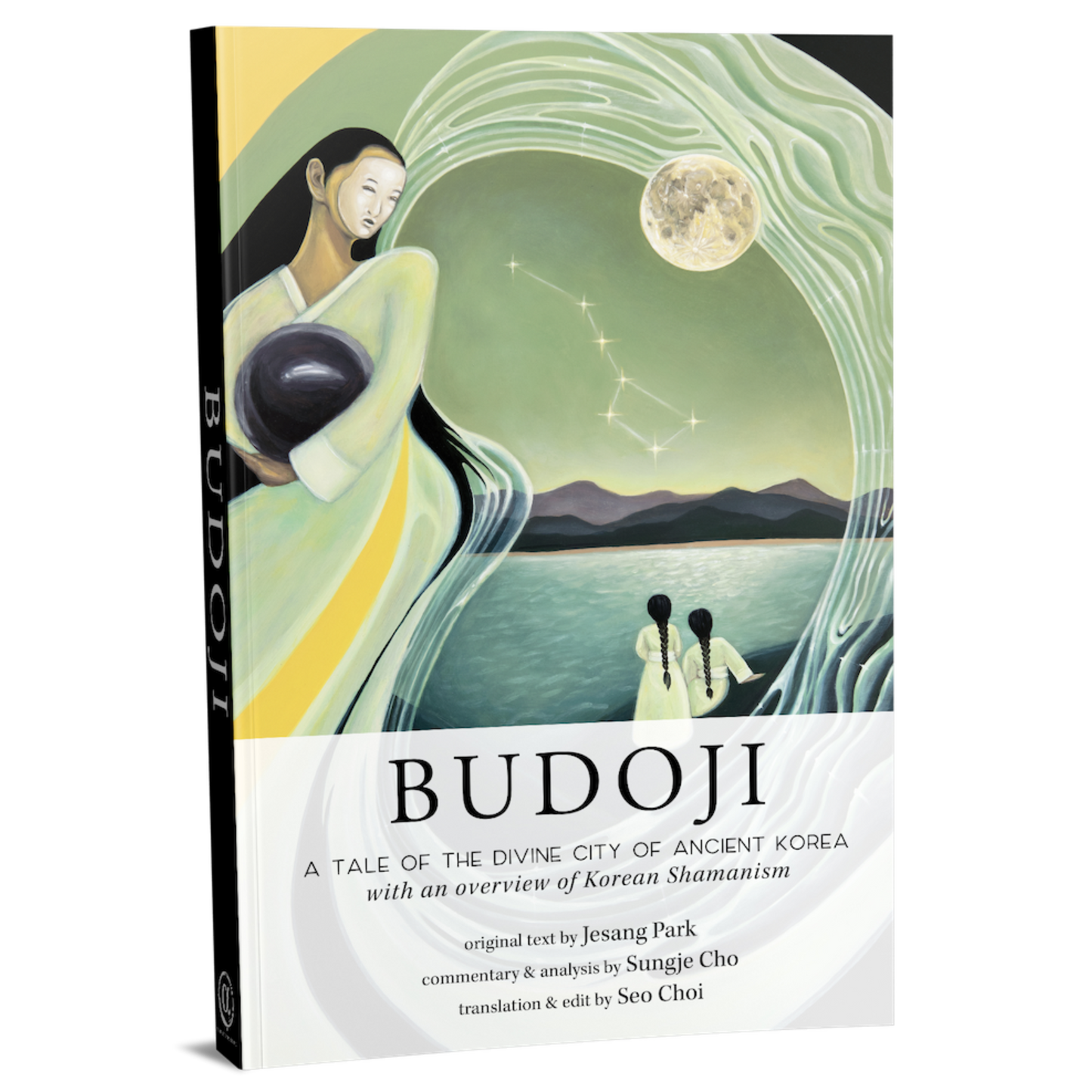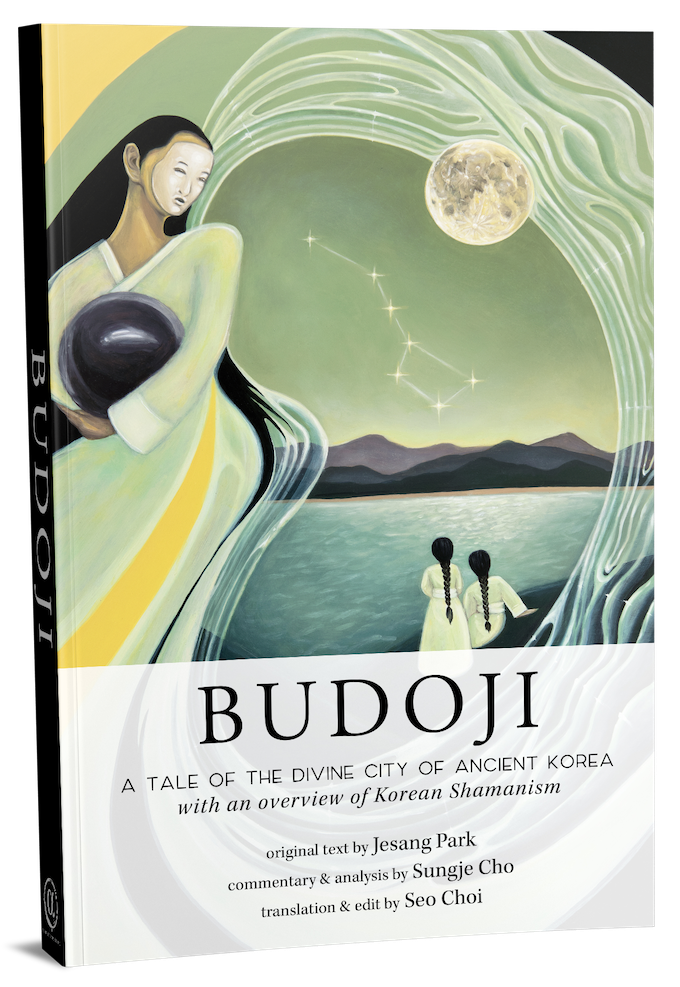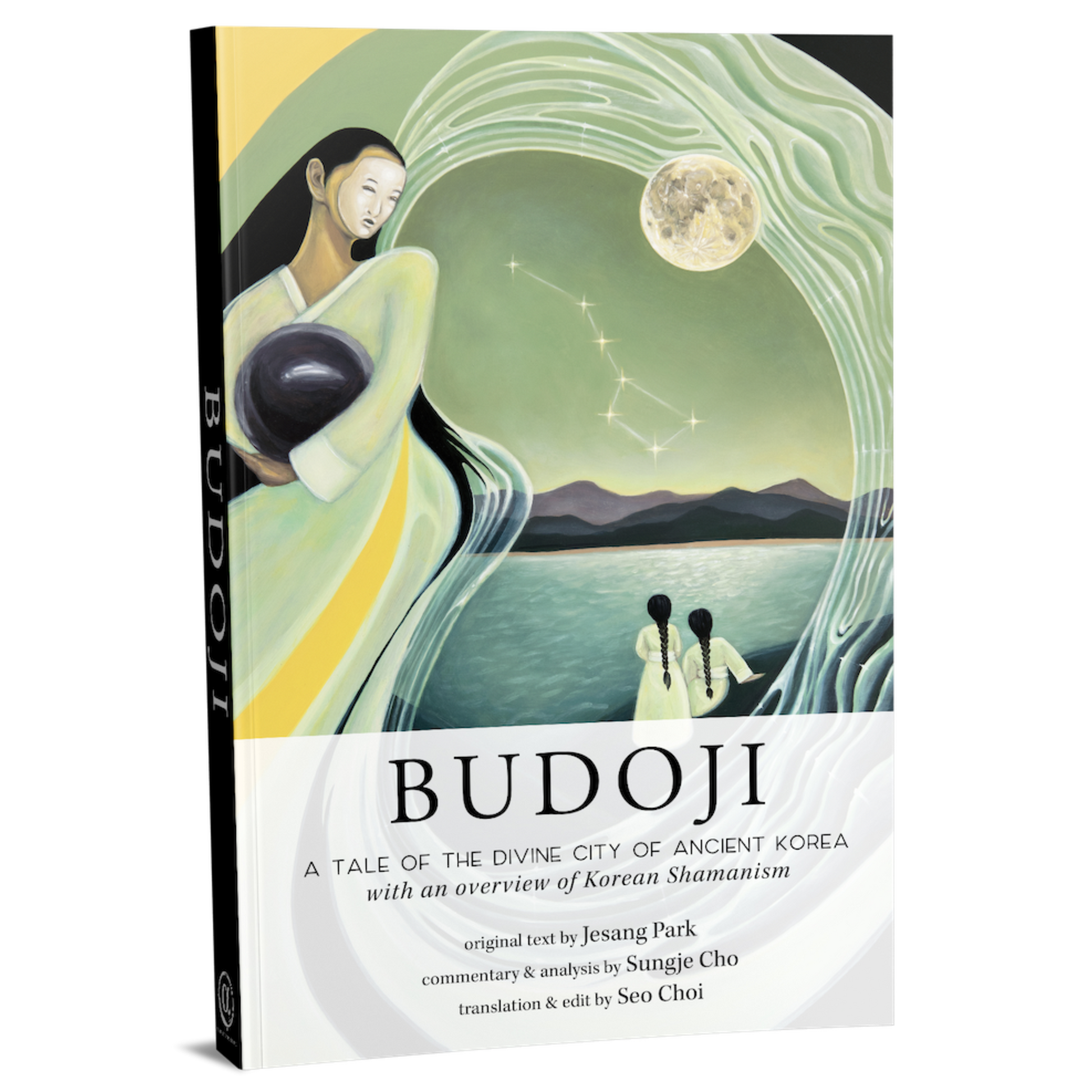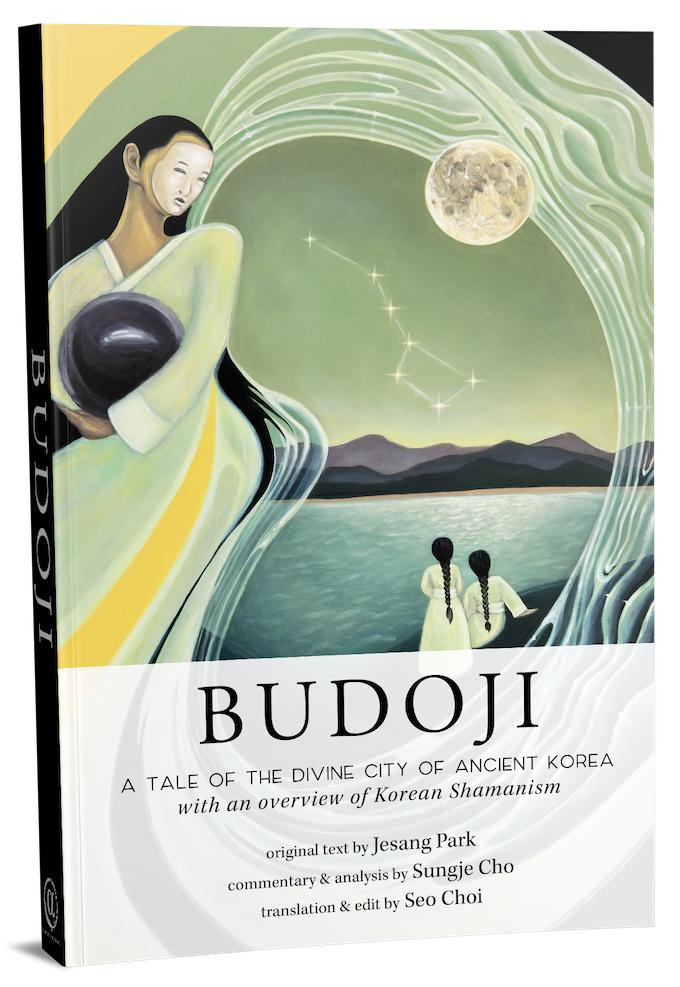Alpha Sisters Publishing
Budoji: A Tale of the Divine City of Ancient Korea
Budoji: A Tale of the Divine City of Ancient Korea
Couldn't load pickup availability
First English translation of the original text of ancient myths and wisdom, with commentary by Sungje Cho, scholar of Korean Shamanism
Budoji: A Tale of the Divine City of Ancient Korea was written by a loyal Silla official named Jesang Park (363-419 CE). It was a chapter in a larger collection of book called Jing Shim Rok, which was passed down through his family over the generations. It was later introduced to the world in 1953 by one of his descendants who was also a journalist.
Budoji contains the culture and early beliefs of Ancient Joseon, which include stories about the creation of the world as well as the origins, the evolution, and the migratory movements of the Korean people. The word Budo refers to both a capital city and to a nation that acts in accordance with the Divine. Together it means that the will of the Divine is fulfilled on Earth. This is the founding principle on which Ancient Joseon (GoJoseon), the kingdom of Dangun, was built upon.
Budoji tells stories of:
- The creation of the universe and humanity by Goddess Mago
- The migrations of four human clans from Mago’s paradise
- The Great Flood
- The succession of leadership in GoJoseon including Hwan Ung and Dangun
- Indigenous wisdom and culture lived by the people of the time
Commentary by Sungje Cho, Scholar of Korean Shamanism
There are many different versions of Budoji published in Korean, which share the original text interpreted with the various point of views of the editors, whether historical or spiritual. This edition from Alpha Sisters Publishing includes commentaries from the point of view of Korean shamanism.
Share




